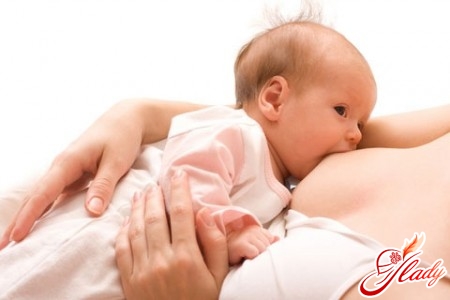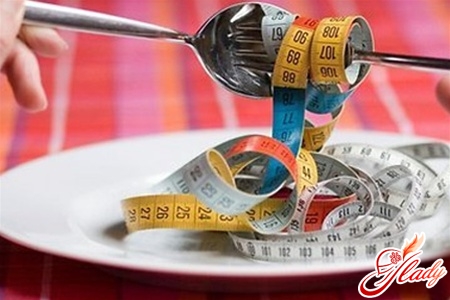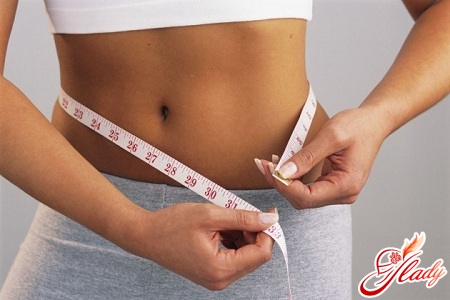 You've been waiting for this for nine long months.Nine months of waiting for a miracle. And finally, it happened - you became a mother. But with the entry into a new role for yourself, the role of a mother, a woman faces a huge number of questions and doubts. The main question for most women is the diet during breastfeeding. After all, now the mother is primarily responsible for the health of the baby. Below we will talk about two types of diets during breastfeeding: a diet that excludes all foods that can cause even the slightest harm to the baby, and a diet during breastfeeding, the purpose of which is to lose excess weight. Some mothers are very reckless about following diets during breastfeeding, and any restrictions at all. However, this is a fundamentally wrong position. After all, absolutely all substances that enter the mother's body penetrate into breast milk. But, you must agree, the usual diet of an adult is not very suitable for a child's body. The strictest diet during breastfeeding is in the first three months of the baby's life, after which it is already possible to allow small indulgences.
You've been waiting for this for nine long months.Nine months of waiting for a miracle. And finally, it happened - you became a mother. But with the entry into a new role for yourself, the role of a mother, a woman faces a huge number of questions and doubts. The main question for most women is the diet during breastfeeding. After all, now the mother is primarily responsible for the health of the baby. Below we will talk about two types of diets during breastfeeding: a diet that excludes all foods that can cause even the slightest harm to the baby, and a diet during breastfeeding, the purpose of which is to lose excess weight. Some mothers are very reckless about following diets during breastfeeding, and any restrictions at all. However, this is a fundamentally wrong position. After all, absolutely all substances that enter the mother's body penetrate into breast milk. But, you must agree, the usual diet of an adult is not very suitable for a child's body. The strictest diet during breastfeeding is in the first three months of the baby's life, after which it is already possible to allow small indulgences.
Diet when breastfeeding baby first months of life
Most often, pediatricians answera mother's question about what products increase the amount of milk produced. This question arises because many mothers do not know how the lactation process occurs and what it depends on. The hormones oxytocin and prolactin are responsible for milk production. This happens as follows: when the baby sucks the breast, the nerve endings in the nipples are irritated and send an impulse to the brain, which begins to produce the above-mentioned hormones. Prolactin ensures full lactation in the volume that the child needs at this stage of development. Oxytocin is responsible for the fact that the produced milk is easily released from the mammary ducts into the baby's mouth. Approximately the same effect is achieved when expressing milk. As you can see from the above, no products can affect the lactation process. The volume of milk produced depends only on how much your baby sucks the breast. That is why it is so important to provide the child with free access to the breast and feed him on demand. After all, no one can stimulate lactation better than the baby himself, and no diet during breastfeeding affects the amount of milk. Almost the same is true regarding the issue of the quality of breast milk. Regardless of what you eat, mother's milk contains all the nutrients, vitamins, macro and microelements necessary for your baby. Even if the nursing mother's food does not currently contain any substance necessary for the baby. It will simply be taken from the woman's own reserves. But it is quite possible and not at all difficult to worsen the composition of milk - this is facilitated by an incorrect postpartum diet when breastfeeding. The mother's consumption of products that cause increased gas formation is very likely to lead to intestinal colic in the baby. If the mother eats products that help soften the stool, the baby may develop diarrhea. Eating a large number of products with a high sugar content can result in allergic dermatitis.
- Below is an example diet for breastfeeding a newborn:</ p>
- It is necessary to completely exclude all dishes fromhigh fat content, as well as fried foods. The maximum that can be afforded during a diet while breastfeeding a newborn baby, is a dish cooked for a couple.
- Eliminate fatty meats from your diet, such aspork and lamb. Chicken, rabbit or beef are the best meat for a nursing mother. You can make cutlets or meatballs from it (only steamed), or simply bake it in the oven. The diet for breastfeeding a newborn baby strictly excludes eating meat with blood that has not undergone thorough heat treatment, since intestinal infection is a deadly disease for the baby.
- A postpartum diet with breastfeeding is notalso allows the use of meat broths. All vegetable soups must be cooked only on the water. When choosing vegetables, it is also necessary to follow certain rules. The use of fresh vegetables is possible only in the summer, when these vegetables mature in the region where the woman lives. In the rest of the time it is necessary to buy only frozen vegetables. This requirement is explained by the fact that imported vegetables contain a large amount of nitrates and pesticides that your crumb absolutely does not need.
- Strictly adhering to the postnatal diet while feedingbreast, carefully treat the preparation of cereals. Doctors - nutritionists recommend that a lactating woman use only buckwheat, rice and corn. Before boiling the porridge, it is necessary to pre-fill the groats with cold water and leave for several hours. After this, drain the water, fill it with clean water and cook.
- Postpartum diet when breastfeeding, contrary toexisting erroneous opinion, allows the use of a woman who feeds a woman with fruit. However, not all in a row, but only apples and pears, previously peeled. In the summer you can use apricots (not peaches) and sweet cherries. Cherries and apricots will not cause the baby to have an allergy or a disorder of the stool.
- Diet during lactation excludesthe use of cow's milk, since many newborn children have intolerance to protein contained in cow's milk. However, observing the diet with breastfeeding, you can use sour-milk products, such as low-fat cottage cheese, bio-yogurt, yogurt, low-fat cheese. Mom needs to ensure that the total number of sour-milk products does not exceed 500 grams per day. Also do not get carried away by cheese, as it can cause constipation in your baby.
- The correct diet for breastfeeding is alsoregulates the use of liquid. The nursing mother should drink at least one and a half to two liters of liquid per day. It is necessary to completely exclude the use of alcoholic drinks, carbonated water, all kinds of juices, except apple. You can drink a weak black or green tea, compote from dried fruits and still water. Pay attention that it was exactly table water, since the use of mineral water can give an extra burden to the kidneys of the baby.
Diet in breast-feeding children older than a year
After the baby reaches one year of age, the breastfeeding diet becomes less strict. The mother can eat almost all foods, except for some.
- So, you still can not eat foods that cause excessive gas formation. These products include legumes, cabbage and carbonated water.
- A lactating woman can enter into her dietfood is sweet, but you should avoid eating chocolate. If the desire to eat chocolate is irresistible, choose white chocolate. It does not contain cocoa powder, which, in fact, causes allergy in children.
- It can also be included in the ration of feedingmums are almost all vegetables and fruits, however, within reason. It is unlikely that the baby's stomach will happily accept the milk of the mother, who ate a few kilograms of pears or plums.
When to Diet While Breastfeeding a Babythe older year will begin to expand, the mother should remember that all products must be introduced very carefully and gradually. You cannot introduce more than one new product every three days. Otherwise, if the baby shows signs of an allergic reaction or a gastrointestinal tract disorder, it will be difficult for you to determine which product caused such a reaction. Another thing to pay attention to is that your menu does not coincide with the baby's solid food menu. That is, if your baby received red beets for dinner, you should not eat it today, as this will cause a double load on the child's body. Some mothers are looking for such a diet when breastfeeding a child in order to lose excess weight. However, this should not be done, moreover, for women's health it is fraught with the occurrence of complications, in particular, iron deficiency anemia. It is not for nothing that nature has provided for the fact that a pregnant woman is sure to gain weight. This happens so that even in the event of hunger, the woman's body can fully feed the child. After all, you can’t fool nature and explain to it that it’s the 21st century and the expectant mother is not in danger of starvation. As a rule, starting from the 6th month of the baby’s life, the body begins to generously spend its energy reserves, spending them on milk production. In most cases, it is during this period that women begin to lose weight on their own, without any diets. The average monthly weight loss is up to one kilogram. Attempts by a nursing mother to go on a diet or exercise intensively can lead to a disruption in the production of hormones necessary for normal lactation. Drinking various teas for weight loss also has an extremely negative effect on milk production. Some mothers in their desire to lose weight go even further – they begin to take drugs that suppress the feeling of hunger. This is extremely dangerous for the baby, as it can cause a loss of appetite and, as a result, a failure of the normal functioning of all life support systems. Is it worth the risk?
Diet after stopping breastfeeding
Almost any mother, having stopped breastfeedingbreastfeeding, strives to return to her usual weight as quickly as possible. However, you should not try to lose weight too quickly. Breastfeeding is quite a serious burden on a woman's body. And after stopping breastfeeding, it needs a certain amount of time to recover. If a woman chooses a very strict diet after breastfeeding, she risks getting serious negative consequences for her health. The most optimal diet after breastfeeding is a gentle diet. Firstly, do not try to reduce the amount of food you eat. Eat the same amount as you ate during breastfeeding, just try to split this amount into a larger number of meals. Try not to eat everything in a row, but choose the most useful and safe products.
- Below are the basic principles on which a post-breastfeeding diet should be based:</ p>
- If you are accustomed to a snack between the mainwith meals, try to replace such high-calorie foods as baked pastries, sandwiches or sweets for something less caloric, for example, an apple or salad.
- Try not to drink tea,coffee, sweet soda water. It is much more useful to replace them with simple drinking water. If you do not have diseases in which there is a tendency to edema, there is no need to limit the amount of fluid you drink.
- It is very useful and effective to replace any meatfish or other seafood. This will not only help a woman lose weight, but also significantly improve her health, help to replace lost during breast-feeding stocks of phosphorus.
- Just like with any diet, you must refuse to eat after 6 pm.
- In no event can you sit down on different,so fashionable now, exotic diets. The constant use of the same product will not bring your weakened feeding to the body anything good, except for the strongest avitaminosis.
Before you go on a diet, think about it.whether you really need it. And don't forget that 90% of people who lose weight on various diets return to their original weight within just one year. It is much more useful to learn to love yourself exactly as you are. After all, you are a mother, and any mother is beautiful! We recommend reading:









